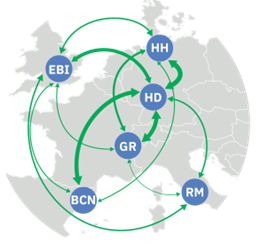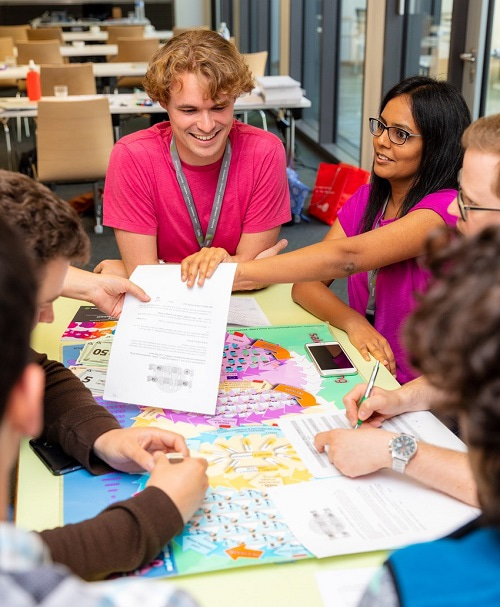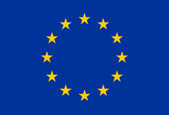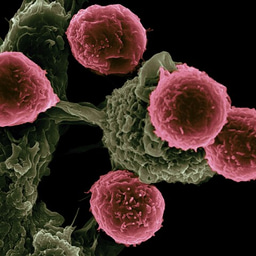EMBL’s Interdisciplinary Postdoc Programme (EIPOD): a catalyst for interdisciplinary and collaborative research

The European Molecular Biology Laboratory (EMBL) is an intergovernmental research organisation committed to advancing research and developing cutting-edge technologies in life sciences. Founded in 1974, the laboratory is supported by 27 member states who fund EMBL's research in five-year programmes. EMBL’s newest research programme – ‘From molecules to ecosystems’ – started earlier this year. The exciting, ambitious and timely programme focuses on understanding the molecular basis of life in context to provide new avenues to address major global challenges such as irreversible loss of biodiversity, antimicrobial resistance, pollution, climate change, food security, and emergent pathogens. The success of the programme depends very much on collaborative interdisciplinary research that incorporates molecular biology, ecology, epidemiology, toxicology, engineering, and mathematical theory.
Training that feeds an interdisciplinary approach
EMBL is known for its collaborative, interdisciplinary research environment. The EMBL Interdisciplinary Postdoctoral Fellowship Programme (EIPOD) contributes to this. The key principle underlying the EIPOD programme is to specifically support postdoctoral fellows who work on interdisciplinary research projects involving a minimum of two EMBL group leaders. During an open call for applications, applicants get in touch with the EMBL group leaders whose research they are interested in during the development phase of their research proposals and prior to submission. This allows mutual interest to be explored and partners with the needed expertise for the project to be identified, laying the foundation for successful research projects.
Interdisciplinary thinking begins with the application
Having candidates develop projects in collaboration with the EMBL groups, through a bottom-up approach, stimulates highly original research projects that bridge fields, combine methodologies, and tackle novel conceptual frontiers. Some examples of EIPOD projects include understanding tuberculosis in patients and predicting mode of action of drugs using high-content databases and machine learning.
Figure 1 illustrates the groups that are involved in joint EIPOD4 research projects across EMBL’s six sites. Additionally, new group leaders benefit from participating in EIPOD research projects with senior EMBL faculty supporting their integration into the EMBL research community.

One of the defining decisions in my research career was to venture into the fascinating yet complex world of microbial communities – now a mainstream research theme of my lab. A major credit for this successful 'adventure' goes to the EIPOD programme, which attracted young talents and enabled bridging together different computational and experimental expertise at EMBL. Thank you EIPOD!

Kiran Patil
EMBL Group Leader from 2010 to 2019
Currently: Director of Research, MRC Toxicology Unit
University of Cambridge
The power of external partners
The EIPOD programme has secured external funding with four consecutive grants from the Marie Skłodowska–Curie Cofund programme. Key to this success has been the continuous development of the programme, with several initiatives that contribute to the quality and breadth of the supported research, training, and career development opportunities for fellows. For example, the possibility for candidates to include external partners on their research projects was introduced with EMBL's third Cofund grant (EI3POD). External partners can include other academic institutes, industry, clinics, or even museums with active researchers. This broadens the scope of possible projects and provides EIPOD fellows with additional training opportunities. Furthermore, participation of external partners extends EMBL's reach across sectors as well as with researchers in its member states and beyond.
Demonstrating diversity
The EIPOD programme recruits globally, targeting early career researchers interested in engaging in interdisciplinary research. One of the criteria of the research projects is that fellows must develop new skills by completing their research projects. This encourages career progression as they transition to next positions after EMBL that may either require or benefit from additional skill sets. The majority of applicants are in a Ph.D. or first postdoctoral position. The programme’s international reach is illustrated by our fellows’ diverse nationalities. EMBL's EIPOD4 grants supported 64 fellows from 26 countries.
This diversity in turn contributes to EMBL's inclusive research culture. Successful applicants receive 3-year contracts to carry out their interdisciplinary research projects. The fellowship also comes with a training package covering topics essential to today’s researchers, including open-science initiatives (e.g., data management and FAIR principles), gender and diversity, intellectual property, and entrepreneurship. Fellows also participate in public engagement activities, such as a workshop with the Natural History Museum, the EIPOD4 programme partner.

The EIPOD programme provides fellows with interdisciplinary research skill sets and the opportunity to develop transferable skills relevant to leadership positions across multiple sectors. This is illustrated by a recent large-scale study of fellows (Ph.D. and postdocs including EIPODs) who left EMBL between 1997 and 2020, which highlights the diversity of positions that EMBL fellows secure following their training at EMBL (Lu et al. doi: https://doi.org/10.1101/2022.03.01.481975).
The unique setting of EMBL’s EIPOD programme was truly inspiring and pioneering in the way we address our scientific questions today.

Lisa Maier
EIPOD fellow from 2015 to 2017
Currently: Group Leader, University of Tübingen, Germany
The future of interdisciplinary research
The benefits of interdisciplinary approaches for solving complex biological problems are clear, and supported by grant schemes from a number of funding bodies who recognise its importance. However, it is also important to ensure that proper mechanisms are in place for institutes, funding bodies and other stakeholders to properly assess research outputs from interdisciplinary research projects, which may differ from projects involving a single discipline. This is particularly important when early career researchers are the main drivers of such projects, as they are dependent on proper assessment of project results to secure positions in an increasingly competitive career landscape. A notable example is with publications, where author lists may be longer for interdisciplinary research projects involving multiple groups.
Interdisciplinary research will continue to be a cornerstone of EMBL’s research strategy in its new programme. The continued success of the EIPOD programme has allowed it to provide an organizational blueprint for catalyzing interdisciplinary and collaborative research. This will remain a core component of the programme together with providing excellent and cutting-edge interdisciplinary research training to supported researchers. With the unique interdisciplinary skill sets they develop, EIPODs are in an optimal position to take advantage of a diverse range of professional career opportunities available in the life sciences.
This post has been written by Dr. Brenda Stride, Postdoctoral Programme Manager, Deputy Head of Internal Scientific Training, EMBL and by Dr. Monika Lachner, Head of Internal Scientific Training, Dean of Graduate Studies, EMBL.
Footnote: The EIPOD programme has received funding from the European Union's research and innovation programme under Marie Skłodowska-Curie (FP7 grant agreement numbers 229597 and 291772; Horizon2020 grant agreement numbers 664726 and 847543).

Photo by the European Molecular Biology Laboratory (EMBL)





Join the FEBS Network today
Joining the FEBS Network’s molecular life sciences community enables you to access special content on the site, present your profile, 'follow' contributors, 'comment' on and 'like' content, post your own content, and set up a tailored email digest for updates.